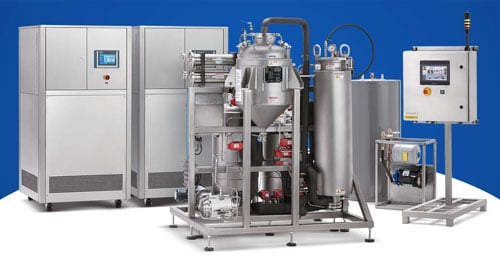Discover the key differences between Delta-8 THC and Delta-9 THC, and how they affect the body and mind.
Understanding Delta-8 THC
Delta-8 THC, also known as delta-8-tetrahydrocannabinol, is a cannabinoid that is naturally found in cannabis plants. It is chemically similar to delta-9 THC, but with a slight difference in its molecular structure. Delta-8 THC is produced in smaller quantities compared to delta-9 THC, which is the primary psychoactive compound in cannabis.
While delta-9 THC is known for its potent psychoactive effects, delta-8 THC is reported to have a milder and more subtle psychoactive experience. Users often describe the effects of delta-8 THC as being more relaxing and less anxiety-inducing compared to delta-9 THC.
Delta-8 THC interacts with the body's endocannabinoid system, which is responsible for regulating various physiological processes such as mood, appetite, and pain sensation. It binds to the CB1 receptors in the brain and nervous system, producing its psychoactive effects. However, delta-8 THC has a lower binding affinity to these receptors compared to delta-9 THC, which may contribute to its milder effects.
Understanding Delta-9 THC
Delta-9 THC, also known as delta-9-tetrahydrocannabinol, is the primary psychoactive compound in cannabis. It is responsible for the euphoric and intoxicating effects commonly associated with marijuana use. Delta-9 THC is produced in higher concentrations in cannabis plants compared to delta-8 THC.
When delta-9 THC is consumed, it binds to the CB1 receptors in the brain and nervous system, leading to various effects such as relaxation, altered perception of time and space, and increased appetite. These psychoactive effects can vary depending on the individual and the amount consumed.
Delta-9 THC is classified as a Schedule I controlled substance in many countries, meaning it is considered illegal and has a high potential for abuse. However, some states in the United States and countries have legalized its use for medicinal or recreational purposes.
Chemical Composition
Both delta-8 THC and delta-9 THC have a similar chemical composition, with the main difference being the placement of a double bond on the molecular structure. Delta-8 THC has the double bond on the 8th carbon atom, while delta-9 THC has it on the 9th carbon atom. This slight structural difference can affect how the compounds interact with the body's receptors and produce their effects.
The chemical composition of delta-8 THC and delta-9 THC also influences their stability and shelf life. Delta-8 THC is known to degrade more slowly over time compared to delta-9 THC, which can affect the potency and effectiveness of cannabis products containing these compounds.
Psychoactive Effects
Delta-8 THC and delta-9 THC have different psychoactive effects due to their varying binding affinities to the CB1 receptors. Delta-8 THC is reported to have a milder and more clear-headed high compared to delta-9 THC. Users often describe the effects of delta-8 THC as being uplifting, relaxing, and less likely to induce anxiety or paranoia.
On the other hand, delta-9 THC is known for its potent psychoactive effects, which can include euphoria, relaxation, altered perception, and increased appetite. However, some individuals may experience anxiety, paranoia, or other negative side effects when consuming high doses of delta-9 THC.
It's important to note that the psychoactive effects of both delta-8 THC and delta-9 THC can vary depending on factors such as dosage, individual tolerance, and the presence of other cannabinoids or terpenes in the cannabis product.
Legality and Availability
The legality and availability of delta-8 THC and delta-9 THC can vary depending on local regulations and laws. Delta-9 THC is classified as a Schedule I controlled substance in many countries, making it illegal to possess, sell, or use without proper authorization.
Delta-8 THC, on the other hand, exists in a legal grey area in some places. While it may be derived from hemp, which is legal under federal law in the United States, its extraction and conversion process can be subject to regulations and restrictions. Some states have explicitly banned or restricted the sale and use of delta-8 THC, while others allow its sale as long as it meets certain criteria.
As for availability, delta-9 THC is more widely available in cannabis products, especially in states or countries where its use is legal. Delta-8 THC products, on the other hand, may be less common and harder to find, depending on local regulations and market demand.


